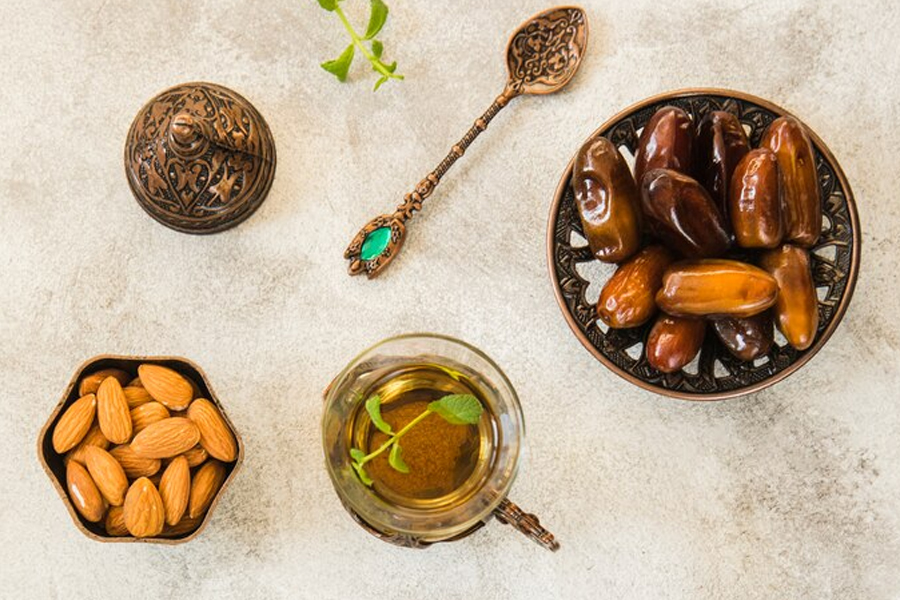Eids in Islam
(Based on Qur’an, Sunnah, and classical commentaries)
Question
What are Eid al-Fitr and Eid al-Adha, and why are they days of joy and happiness in Islam?
Bottom Line
Eids are festivals of worship, gratitude, and joy. They are marked by prayer, charity, family, and halal celebration replacing pre-Islamic festivals with better days from Allah.
Quick Answer
Eids are the two annual Islamic celebrations: Eid al-Fitr after Ramadan and Eid al-Adha during Hajj. They are times of festivity, mercy, and thanksgiving. Fasting and mourning are prohibited, while joy, prayer, charity, and family gatherings are encouraged.
Why Eids Are Celebrations
When the Prophet ﷺ arrived in Madinah, he found people celebrating two pre-Islamic festivals. He said:
“Allah has replaced them for you with two better days: the day of al-Adha and the day of al-Fitr.”
Key Takeaways
- Joy and celebration are part of worship on Eid.
- Fasting is forbidden on both Eids (Bukhari 1992).
- Charity (Zakat al-Fitr, sacrifice) ensures everyone shares the joy.
- Lawful play and entertainment were encouraged by the Prophet ﷺ (Bukhari 952).
Core Aspects of Eid
| Aspect | Eid al-Fitr | Eid al-Adha |
|---|---|---|
| Timing | After Ramadan | During Hajj, 10th Dhul-Hijjah |
| Act of Worship | Zakat al-Fitr | Animal sacrifice (Qurbani) |
| Main Theme | Gratitude for completing fasting | Commemoration of Ibrahim’s sacrifice |
| Prohibition | No fasting | No fasting |
| Joy | Sharing food, visiting, and community prayer | Feasting, sacrifice, and distribution to the poor |
Joy in the Sunnah
- A’ishah (RA) reported: Abyssinians played with spears in the mosque on Eid, and the Prophet ﷺ encouraged her to watch (Bukhari 952).
- The Prophet ﷺ forbade fasting on Eid to emphasize feasting (Muslim 1137).
- The Eid prayer gathers the entire community, including women and children (Bukhari 324).
✅ Do’s & ❌ Don’ts on Eid
| Do’s | Don’ts |
|---|---|
| Pray Eid salah with the community. | Fast on Eid days. |
| Give Zakat al-Fitr (Fitr) / perform Qurbani (Adha). | Waste food or indulge in extravagance. |
| Wear your best clothes and greet others with joy. | Turn Eid into mourning or gloom. |
| Engage in halal entertainment and family gatherings. | Engage in sinful or prohibited acts in the name of joy. |
What This Means for You
Eid is not just a festivity, it is gratitude, community, and mercy in action. Celebrate with prayer, halal joy, and charity so everyone shares in happiness. Eid reminds us that Islam values balance: worship tied with joy, faith with festivity, and devotion with community love.
And Allah knows best.
References
Primary Sources
- Qur’an 2:185: Completing Ramadan and glorifying Allah.
- Abu Dawud 1134: Replacement of pre-Islamic festivals with Eid al-Fitr and Eid al-Adha.
- Bukhari 952; Muslim 892: Play and joy on Eid.
- Bukhari 1992; Muslim 1137: Fasting prohibited on Eid.
Secondary Sources
- Ibn Hajar, Fath al-Bari: Commentary on joy and prohibition of fasting on Eid.
- Al-Nawawi, Sharh Sahih Muslim: Notes on lawful play and celebration.
- Ibn Taymiyyah, Majmu’ al-Fatawa: On Eid as a symbol of unity and festivity in Islam.
© Copyright 2025, All Rights Reserved

